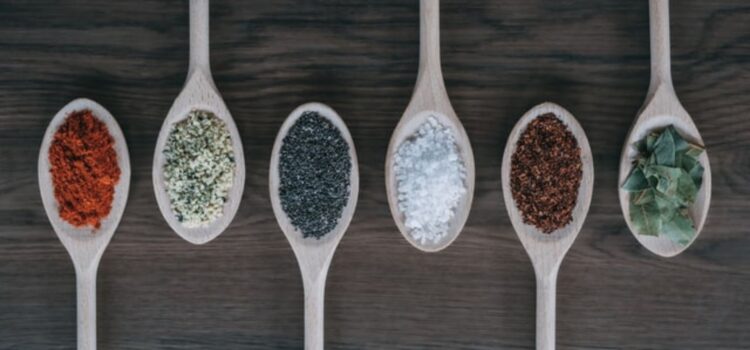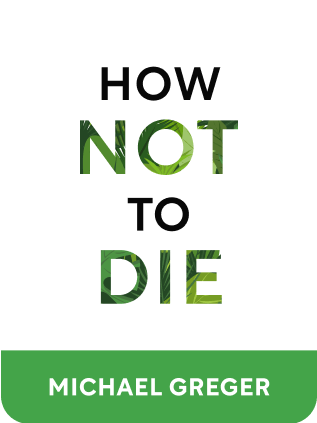

This article is an excerpt from the Shortform book guide to "How Not to Die" by Michael Greger. Shortform has the world's best summaries and analyses of books you should be reading.
Like this article? Sign up for a free trial here .
Do herbs and spices have benefits beyond their culinary use? What are some of the healthiest herbs and spices to use?
Herbs and spices have been hailed for their healing properties well before their culinary use. Further, their health benefits have been corroborated by dozens of scientific studies.
Here are some of the healthiest spices and herbs to use in your cooking.
The Power of Herbs and Spices
People around the world have hailed herbs and spices for their intense flavors and healing powers. In his book How Not to Die, Gene Stone and Michael Greger outline the healthiest spices and herbs, detailing their health benefits, servings, and uses.
Turmeric
- Curcumin appears to be the dominant active ingredient.
- Turmeric has been shown to reduce lung disease, brain disease, cancers, rheumatoid arthritis, osteoarthritis, and ulcerative colitis.
- 1/8 teaspoon of turmeric daily reduces free radical damage and DNA breakage by 50%, in extracted blood cells.
- A compound in black pepper (piperine) inhibits drug metabolism in the liver and increases the bioavailability of turmeric.
- Cooked turmeric seems to offer better DNA protection. Raw turmeric offers better anti-inflammatory effects.
- What about curcumin supplements?
- Turmeric appeared to have twice the effect of curcumin in inhibiting cancer cell growth in vitro.
- Curcumin-free turmeric has similar effects as turmeric, so other compounds in turmeric may contribute to its health benefits.
- Eating curcumin supplements also raises more of a risk of overdosing on curcumin.
- Don’t take turmeric if you have gallstones (it pumps the gallbladder and causes pain) or if you’re prone to kidney stones (turmeric contains oxalates; restrict to <1 teaspoon daily of turmeric if you have kidney stones).
Fenugreek
- Found to improve 1 rep max lifts for leg press and bench press, by about 100%. (For the leg press, placebo improved 48kg, while the fenugreek group improved 84kg.)
- It has an odd site effect—it causes armpits to smell like maple syrup.
Cilantro
- Reduces inflammation levels in arthritis patients and reduces uric-acid levels
Cayenne Pepper
- Might be useful for cluster headaches and irritable bowel syndrome, because it depletes a pain neurotransmitter (substance P).
Ginger
- A randomized controlled trial showed 1/8 tsp of ginger worked as well as the drug sumatriptan for migraines.
- 1/8 tsp a day, 3 times a day reduced menstrual cramp pain from an 8 to a 3 over 2 months (using the 10-point pain scale).
- Ginger counters vomiting and motion sickness.
- During pregnancy, the maximum amount of ginger recommended is 20g.
Peppermint
- This is the most antioxidant-dense common herb.
Oregano and Marjoram
- Containing antioxidants, these herbs reduces chromosome damage from radioactive iodine by 70% in vitro.
Cloves
- This is the most antioxidant-dense common spice.
Amla
- This is the most antioxidant-dense uncommon spice, at 261.5 units compared to 9.24 for blueberries.
Spice Mixes
- Spice mix, when applied to a high-fat chicken meal, doubled antioxidant presence in bloodstream and reduced triglycerides in blood by 30%.
Liquid Smoke
- Smoke compounds are carcinogenic, but they’re fat-soluble. Therefore, the cancer-causing compounds don’t reside in spices or liquid smoke.
Potential Dangers
Spices have high antioxidant density but this can be too much of a good thing:
- Poppy seeds contain opium, and you can overdose—the safe dose is below 1 teaspoon for 10lbs of body weight.
- Nutmeg can create amphetamine-like compounds—the safe dose below 2-3 tsp per day.
- Cassia cinnamon contains coumarin, which may be toxic to liver—the safe dose is below a teaspoon per day.

———End of Preview———
Like what you just read? Read the rest of the world's best book summary and analysis of Michael Greger's "How Not to Die" at Shortform .
Here's what you'll find in our full How Not to Die summary :
- The health benefits of a plant-based, whole-food diet
- How to reduce your risk of developing the most common diseases that can kill you
- The 12 foods you should eat daily to maximize health benefits






